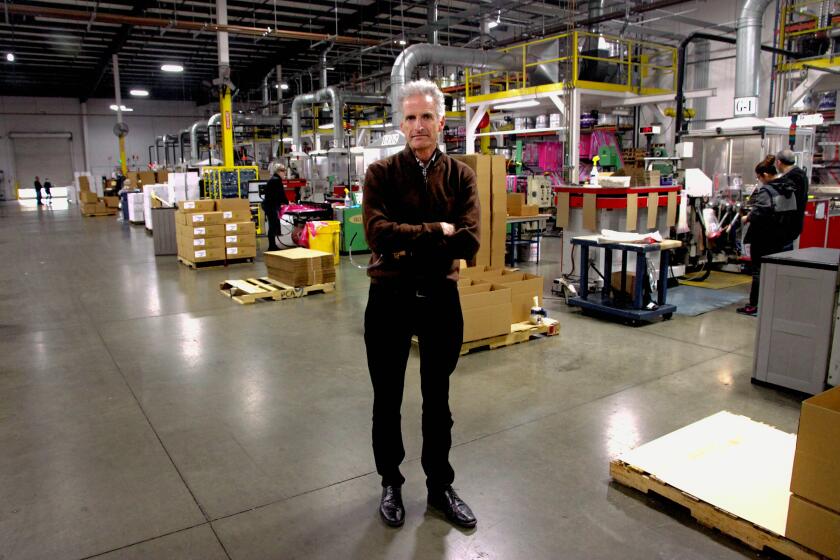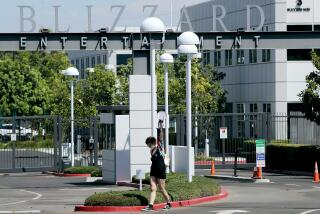Salesforce to lay off 8,000 workers in latest tech purge

- Share via
Salesforce is laying off about 8,000 employees, or 10% of its workforce, as major technology companies continue to prune payrolls that rapidly expanded during the pandemic lockdown.
The cuts announced Wednesday are by far the largest in the 23-year history of a San Francisco company founded by former Oracle executive Marc Benioff. Benioff pioneered the method of leasing software services to internet-connected devices — a concept now known as “cloud computing.”
The layoffs are being made on the heels of a shake-up in Salesforce’s top ranks. Benioff’s hand-picked co-Chief Executive Bret Taylor, who also was Twitter’s chairman at the time of its tortuous $44-billion sale to billionaire Elon Musk, left Salesforce. Then, Slack co-founder Stewart Butterfield left. Salesforce bought Slack two years ago for nearly $28 billion.
Salesforce workers who lose their jobs will receive nearly five months of pay, health insurance, career resources, and other benefits, according to the company.
Benioff, now the sole CEO at Salesforce, told employees in a letter that he blamed himself for the layoffs after continuing to hire aggressively into the pandemic, with millions of Americans working from home and demand for the company’s technology surging.
We can’t expect the industry to transform itself in 2023. That push must come from government and voters.
“As our revenue accelerated through the pandemic, we hired too many people leading into this economic downturn we’re now facing, and I take responsibility for that,” Benioff wrote.
Salesforce employed about 49,000 people in January 2020 just before the pandemic struck. Salesforce’s workforce today is still 50% larger than it was before the pandemic.
Meta Platforms CEO Mark Zuckerberg also acknowledged he misread the revenue gains that the owner of Facebook and Instagram was reaping during the pandemic when he announced in November that his company would by laying off 11,000 employees, or 13% of its workforce. E-commerce giant Amazon and a wide range of other companies also have been jettisoning thousands of workers in recent months after expanding too aggressively during the pandemic.
Like other major tech companies, Salesforce’s recent comedown from the heady days of the pandemic have taken a major toll on its stock. Before Wednesday’s announcement, its shares had plunged more 50% from their peak of about $310 in November 2021. The shares gained nearly 4% on Wednesday to close at $139.59.
“This is a smart poker move by Benioff to preserve margins in an uncertain backdrop as the company clearly overbuilt out its organization over the past few years along with the rest of the tech sector with a slowdown now on the horizon,” Wedbush analyst Dan Ives wrote.
Salesforce also said Wednesday that it will be closing some of its offices, but didn’t include locations. The company’s 61-story headquarters is a prominent feature of the San Francisco skyline and a symbol of tech’s importance to the city since its completion in 2018.
Salesforce anticipates incurring $1.4 billion to $2.1 billion in costs to carry out its cutbacks. That includes $1 billion to $1.4 billion in charges tied to employee transition, severance payments, employee benefits and stock-based compensation. There will be $450 million to $650 million in charges for office closings. Approximately $800 million to $1 billion in charges are expected to occur in Salesforce’s fiscal fourth quarter that ends Jan. 31.
As the variant spreads, businesses across California are rethinking return-to-office timelines and scrambling to cope with lost productivity.
More to Read
Inside the business of entertainment
The Wide Shot brings you news, analysis and insights on everything from streaming wars to production — and what it all means for the future.
You may occasionally receive promotional content from the Los Angeles Times.












